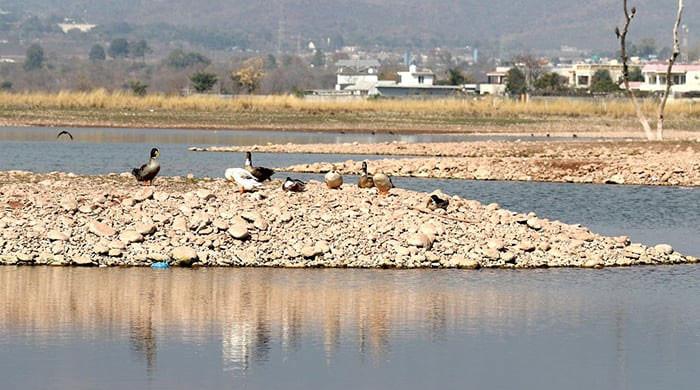WATCH: Mosquito-eating fish that helps control dengue
Mosquito-eating fish consume between 100 and 300 mosquito larvae a day, experts say
January 17, 2022
The fishery authorities in Punjab will provide mosquito-eating fish to provincial dengue control teams in order to combat the province's rising dengue cases.
These fish are regarded as mosquito-killing fish because they consume between 100 and 300 mosquito larvae a day.
"Punjab will use mosquito killer fish to control dengue naturally," DW reported.
The report said that Gambusia is a type of mosquito killer fish that grows in freshwater and is four to seven centimetres in length.
According to experts, Gambusia fish, on the other hand, are detrimental to other fish species and the ecosystem.
"Gambusia fish do not lay eggs; rather, they give birth to young fish," said the report.
Experts say that these small freshwater fish consume mosquito larvae as well as other small fish. As a result, authorities have found out Tilapia fish as an alternate for Gambusia in order to biologically control dengue and malaria while also protecting other fish from mosquito-killer fish.
According to Punjab's Assistant Director of Fisheries Abdul Rahman, "Once Gambusia invades a system, it has a negative effect on the fish fauna eco-system."
Assistant Director of Fisheries and Dengue researcher Dr Ansar Mahmood Chattha said that his team discovered mosquito-killing fish in Uchhali Lake in District Khushab.
He stated that following the research, his team discovered that Gambusia fish has a detrimental effect on the fish ecosystem rather than a beneficial effect, which is why the team has decided to discard it.
However, he added that tilapia fish is an excellent alternative because it does not decrease the fish fauna's biodiversity and is an effective biological control agent for dengue and malaria.
"It is larger in size and has a greater capacity for mosquito consumption than Gambusia," he added.
According to the DW report, the provincial fisheries authorities have entrusted local hatcheries with the responsibility of farming and releasing tilapia into open ponds and lakes.
Each year, approximately 1,60,000 fish were taken from the Manawan hatchery centre to combat dengue cases, it stated.











